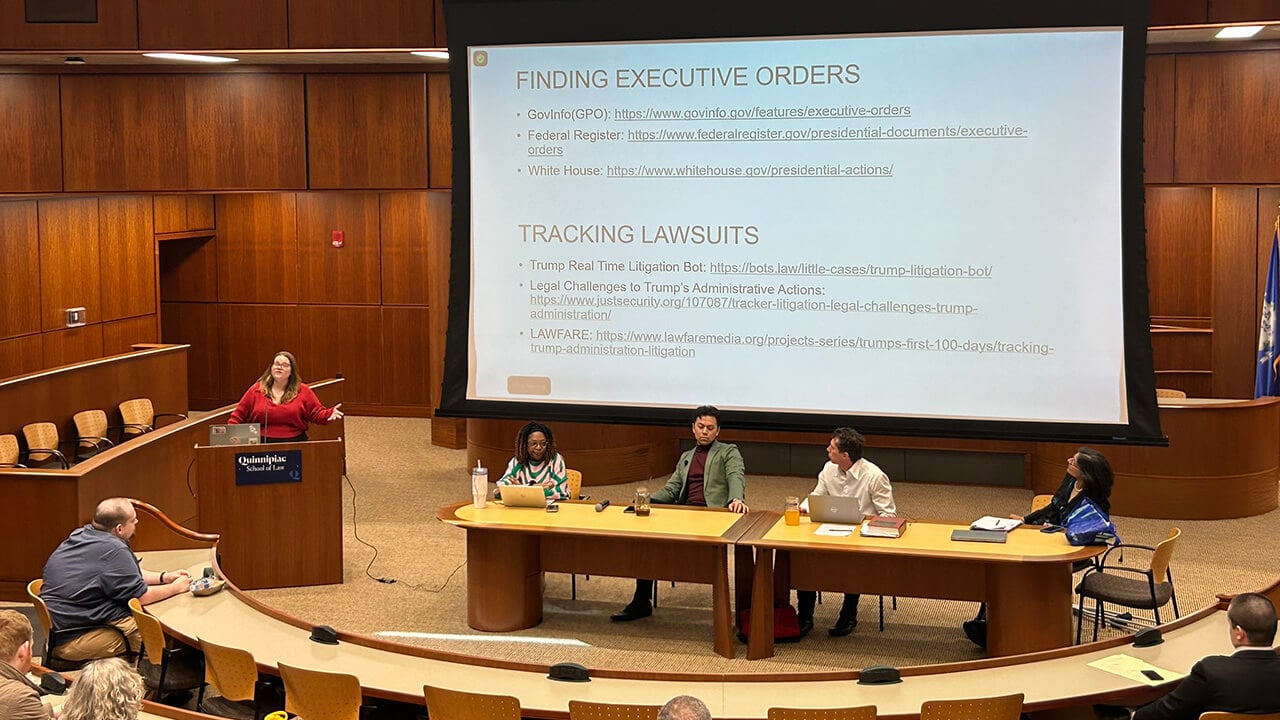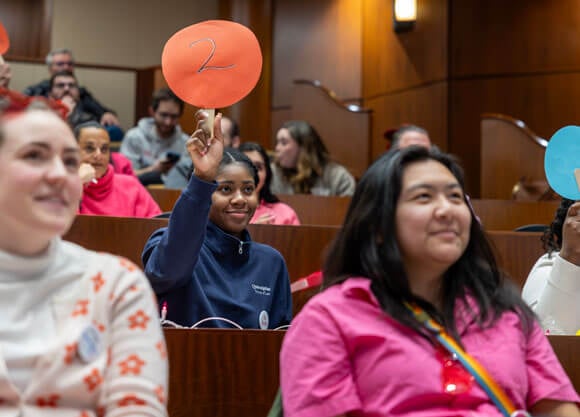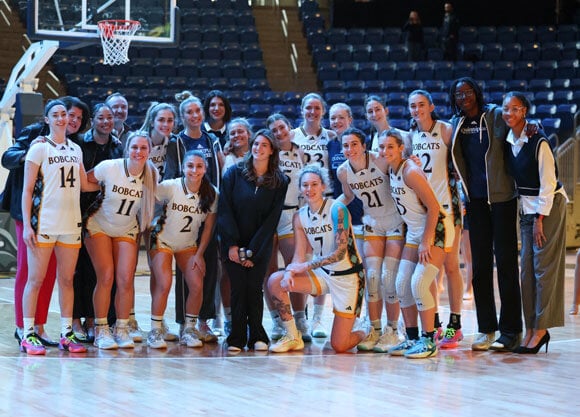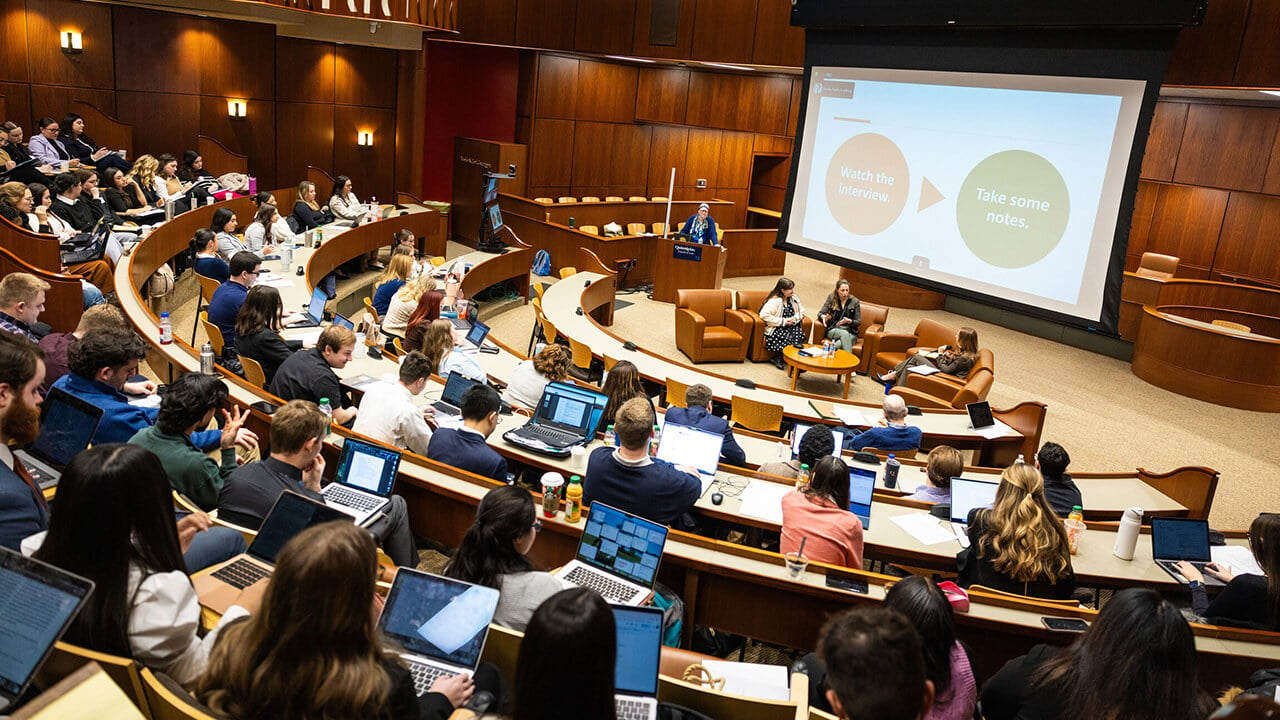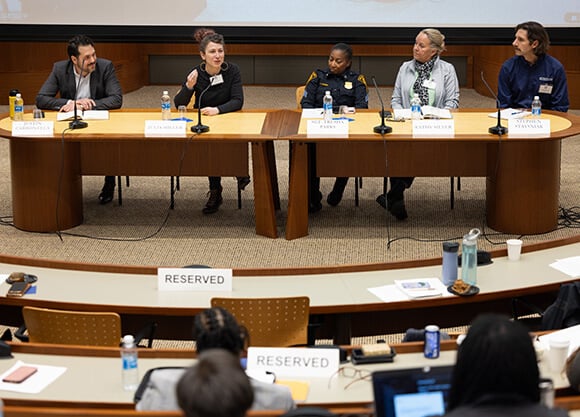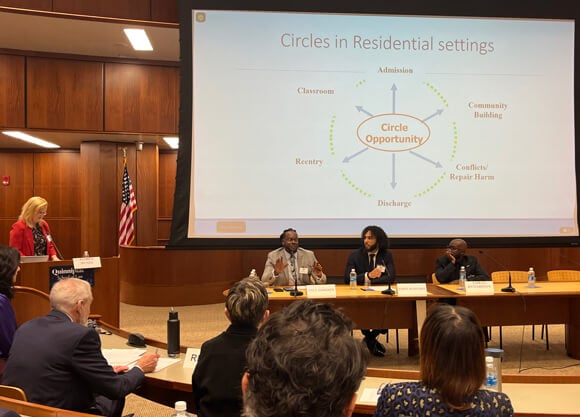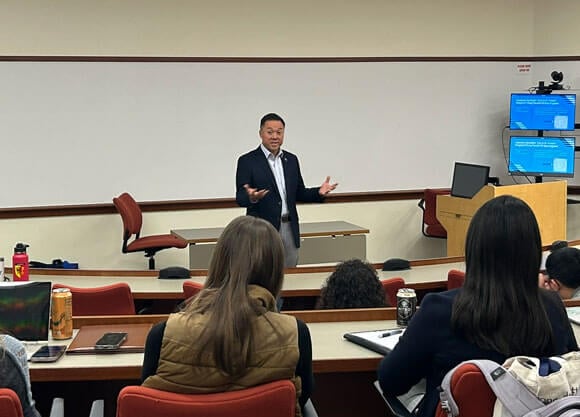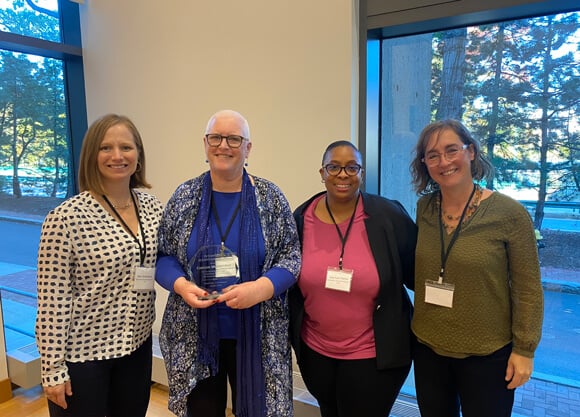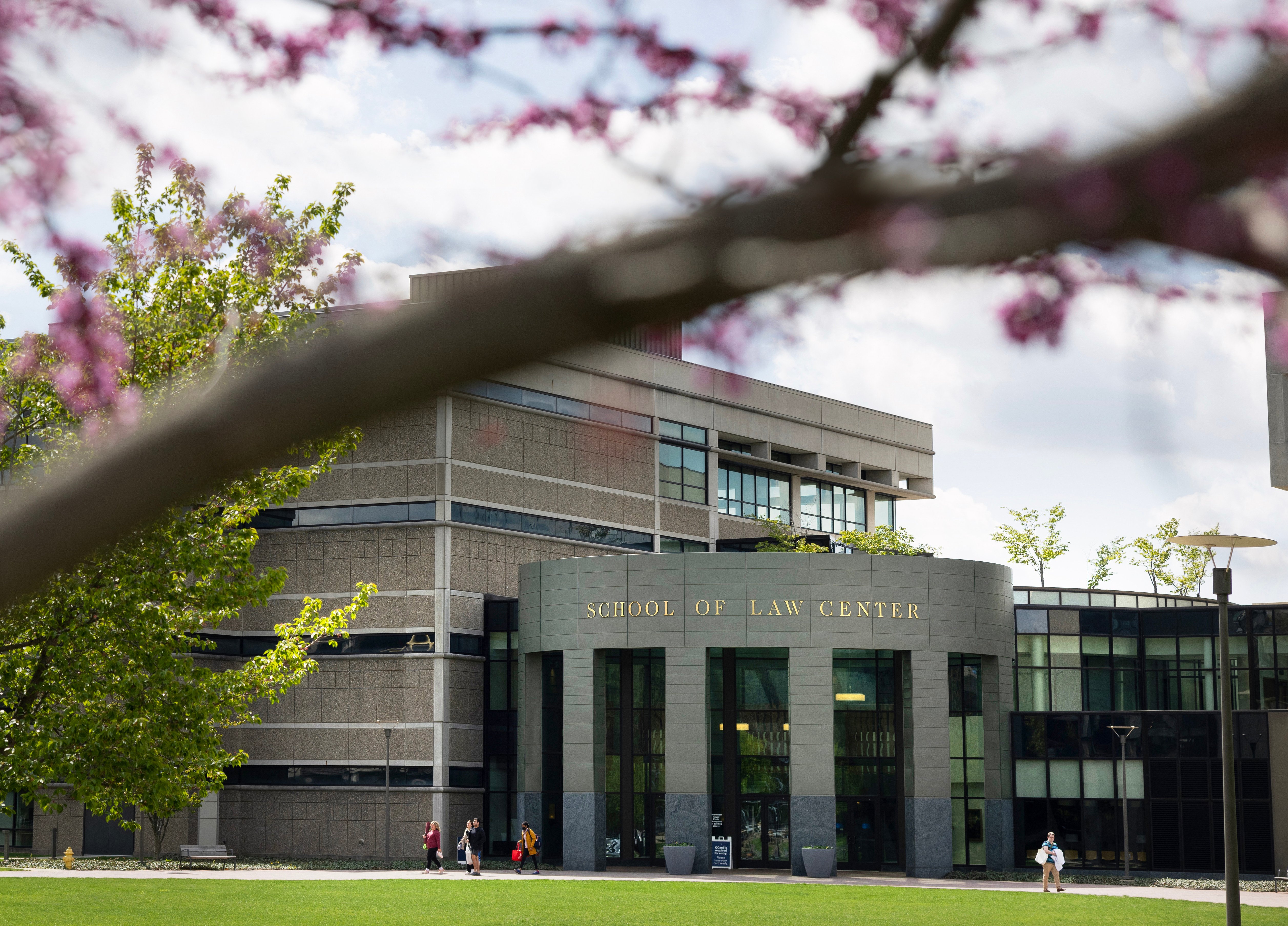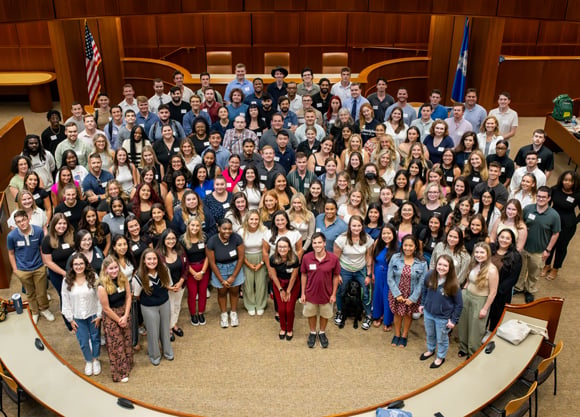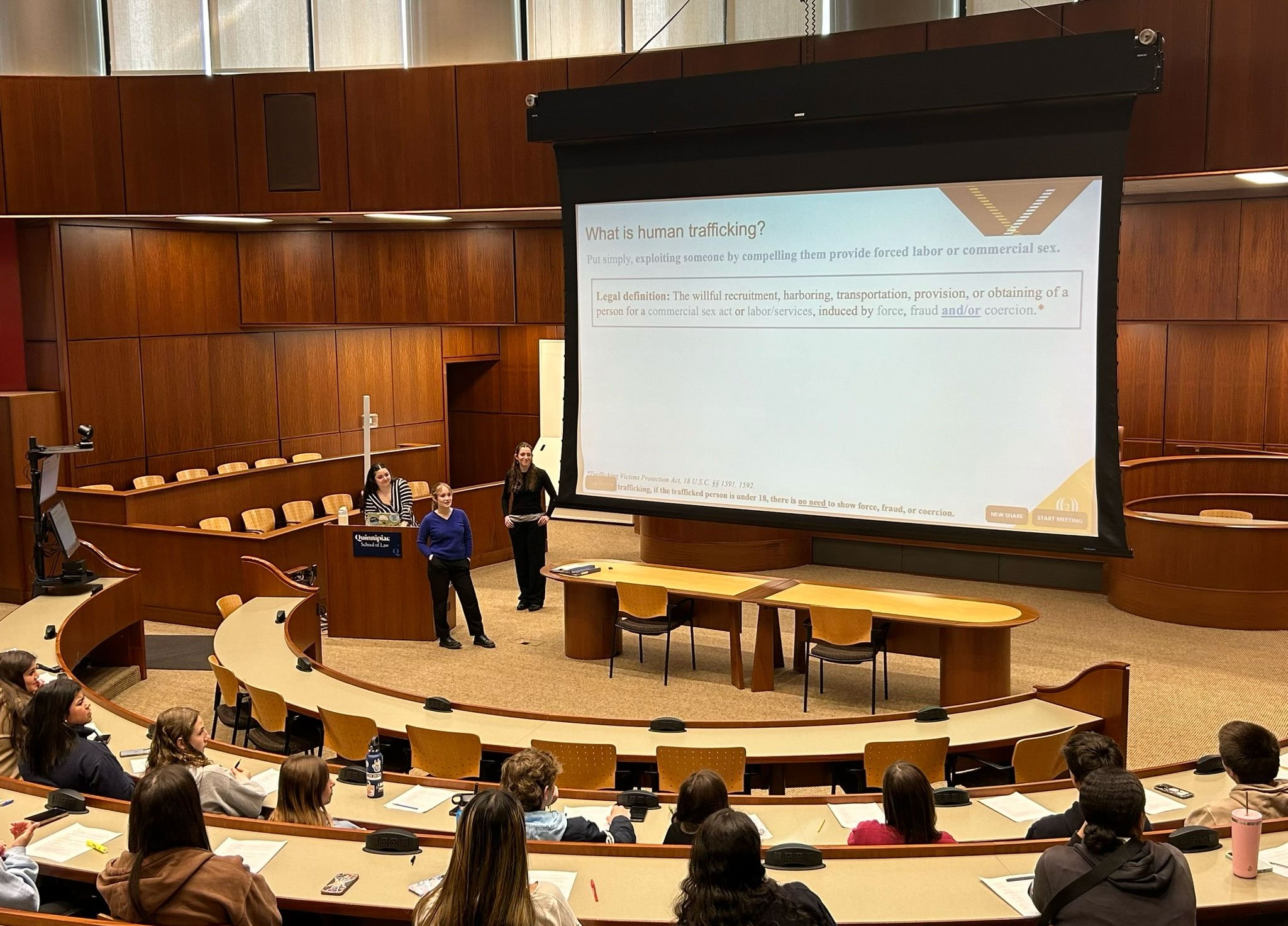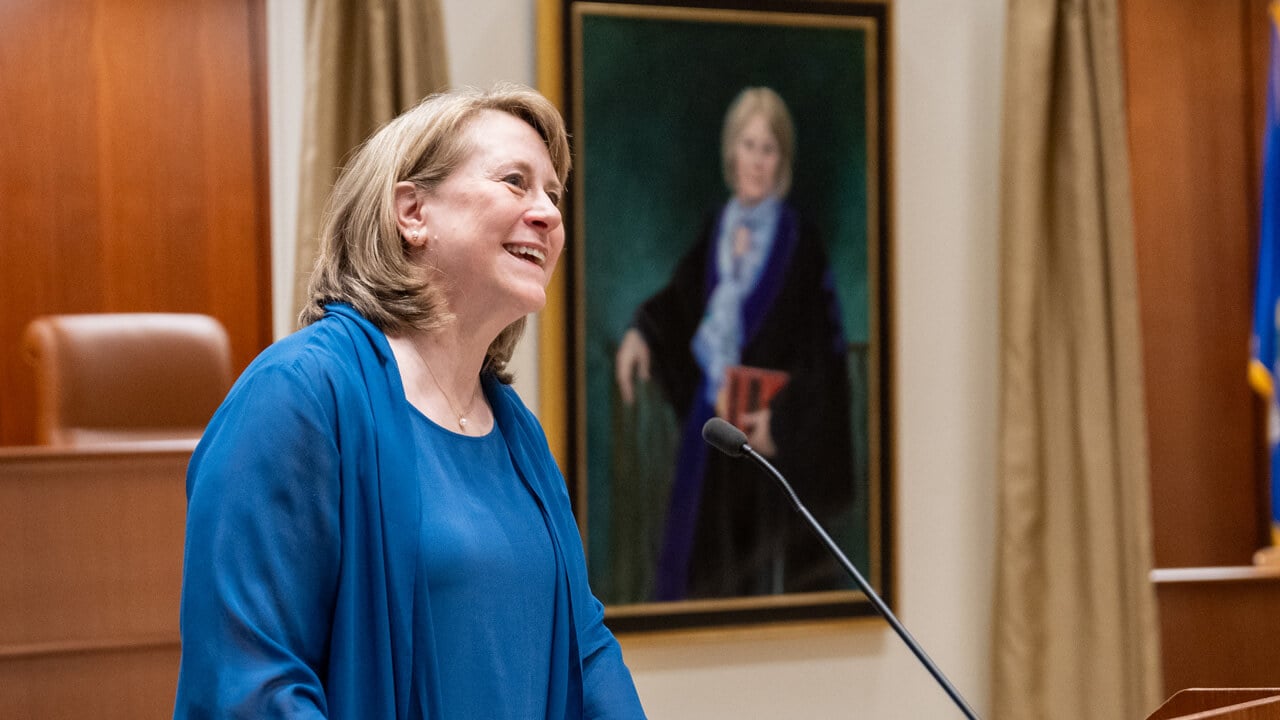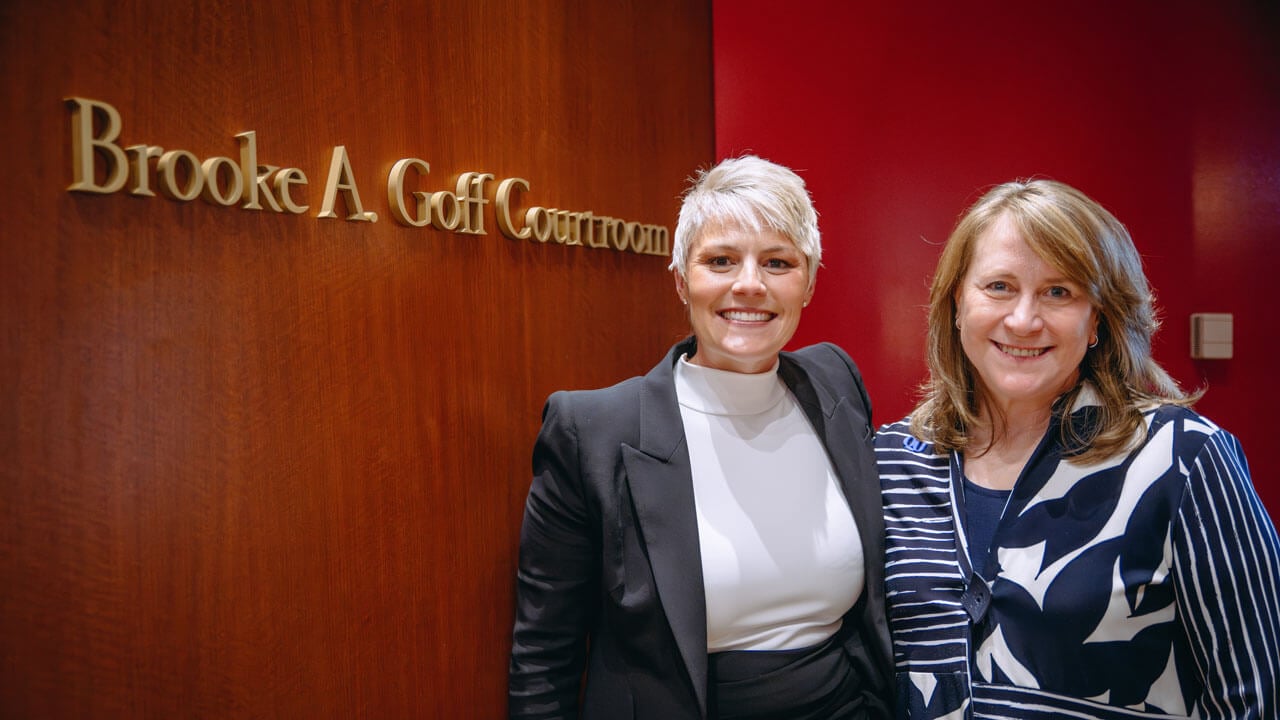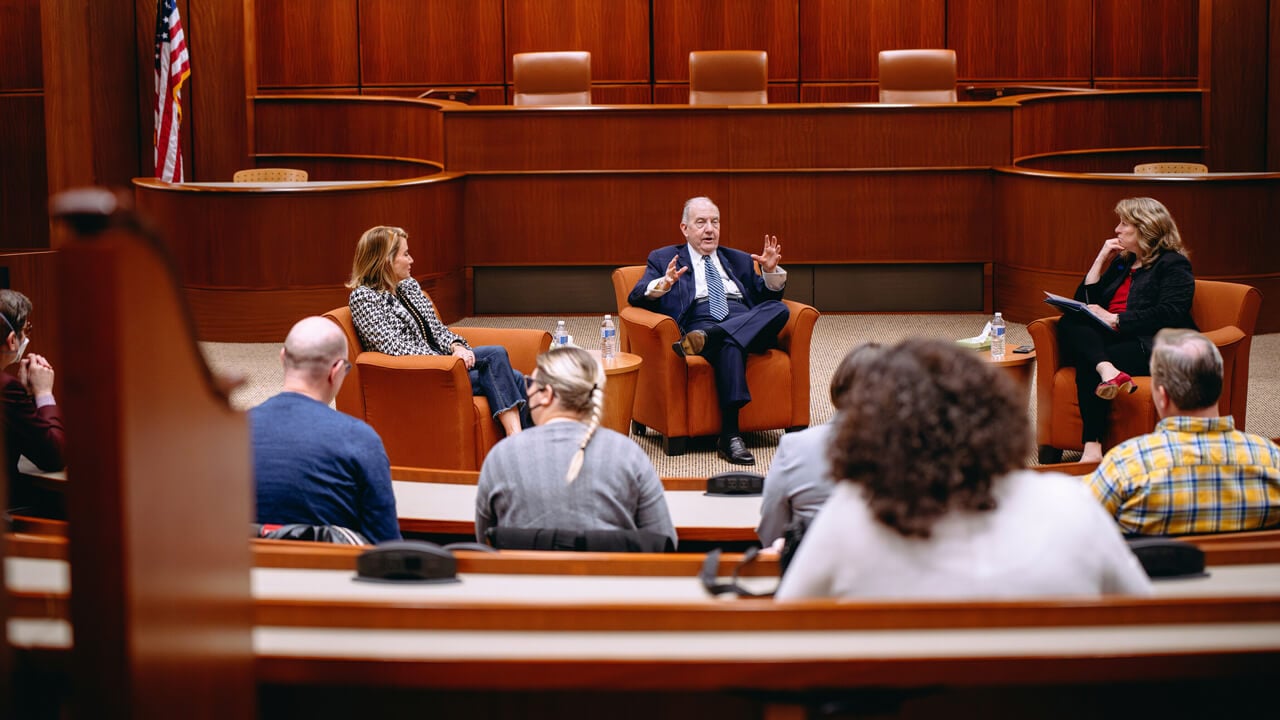
“Maybe we need to take a closer examination of what a ‘mission specialist’ is,” explained Craig McLean, JD ’93, who has completed dozens of undersea missions, including two submersible dives to the Titanic for the National Oceanic and Atmospheric Administration. “How many hours of training, how many months of training, how many years of training, what is the formal advanced degree to be a ‘mission specialist’ when someone uses that term to potentially evade regulatory oversight of inspecting the vessel that can carry paying passengers.”
McLean is among the planet’s leading experts on the oceans and the laws that govern them. For four decades, he has worked tirelessly to drive the exploration, protection and improvement of the world’s oceans — while championing scientific integrity, diplomacy and marine conservation. He has also been a ship captain and performed policy work for the U.S. Congress.
Learn more about McLean and his work in this Summer 2022 Quinnipiac Magazine article
Throughout his time working within the maritime community, he developed many dear friendships — including that of Paul-Henri Nargeolet, known as “PH,” who was one of the five people who died when the Titan imploded deep beneath the Atlantic last week.
“It’s a small community and quite a few people know each other well,” McLean said.
In a conversation following the tragedy, McLean, who retired from NOAA last year, described Nargeolet as “one of the most kind, capable and gentlemanly individuals in the ocean science community.”
“P.H. was very humble, and very sharing of his knowledge — just a warm person who genuinely cared about how you were doing,” said McLean. “He is one of the main engines of intellect who helped bring us to a better understanding of the historic Titanic shipwreck.”
“We would see each other periodically at professional societies and other events,” McLean recalled. “He certainly was a man of the community. And a loss to the community in his demise.”
Like Nargeolet, McLean said he was approached to participate in an OceanGate dive.
“I gave the polite wave-off,” he explained. “I didn't trust the design. I had no idea about the history of the people who were behind building it. It just did not seem to me to be a wise thing for my own longevity.”
McLean said he has come to garner greater trust for spherical submersible vessels over cylindrical vessels given all of the pressure deep beneath the waves. The OceanGate craft was cylindrical.
“With a cylinder, there are different levels of pressure and pressure weakness in the design as opposed to a sphere, which is what I have dove in,” McLean explained. “A sphere has pressure applied uniformly at every point across the vessel, so it generally reinforces the integrity of the submersible rather than prosecuting a weak point in the design of the submersible body.”
McLean believes maritime experts like him and Nargeolet were approached by OceanGate to offer credibility to the company and the submersible design.
He said in the wake of the accident, he believes legislators will need to reconsider regulations for future deep-sea — and orbital — research.
“Going down to the way that the mission specialists are titled, I think that raises a number of questions for further examination by our Congress and the federal agencies that have responsibility for transportation, maritime safety, etc.,” he said. “I would be highly confident that they are preparing to examine this once all the facts are known and make some determinations as to how such activity could still preserve innovation but protect less than fully informed individuals.”
He credits Quinnipiac for preparing him for his work.
“The component of my career that involved law was enabled by the excellent education I received at Quinnipiac,” McLean said. “Being able to rely on the depth of skill that the professors who taught me and how I was able to take that experience and knowledge and bring it into the federal system and work in the maritime legal community, whether I was functioning as a lawyer at the time or in other jobs that have stayed with me throughout my career. I have greatly benefited from being able to study at Quinnipiac. I am proud of it.”
The Quinnipiac alumnus compared people going on deep-sea submersibles to other adventures.
“The people who go on these trips to climb Mount Everest, who are not professional mountaineers, or the people who would dive in deep-sea submersibles, but they're not deep-sea engineers or trained in this, there's still a gap,” he said in contrast to another industry. “We've asked our medical community to make sure that informed consent is achieved with a patient before they undergo a disruptive intervention — surgery or otherwise. I can say that, yes, there's a consent form that was signed anytime I go SCUBA diving.”
He said the disaster invites the question of what a government or society should be looking at to protect people from exposure to something that may not be as capable as they might otherwise believe.
The failure of the Titan submersible poses an important engineering question, McLean said: What is the repetitive resilience of carbon fiber in this environment?
“Carbon fiber is a lighter material and more advantageous than some of the heavy metals that are used in some undersea exploration, but the idea of carbon fiber, every material has a flexion or an expansion contraction cycle, and a number of cycles that are expected to use,” he said. “Coming from my former NOAA portfolio, we have hurricane airplanes. And for those aircrafts, it's not how many years the aircraft has been in service, but how many hurricanes that aircraft has flown through when it comes to when it’s time to replace parts that would have had excessive tension placed on them.”
The challenge with carbon fiber in deep-sea submersibles is that there's so little data as to when it's safe and when it’s no longer safe, McLean said. Therein lies the conundrum.
He said for members of the public, there is a safer, far more rewarding way to explore deep sea— including the Titanic site.
“We have a marvelous video that can be delivered into our living rooms or onto our handheld devices,” he said thinking back to what inspired him when he was a child sitting in his own living room. “That’s what inspired me to get involved in the undersea: It was watching Jacques Cousteau on black and white television with the rest of my family.”
McLean said he expects that a growing number of undersea missions will be remote.
“In terms of extracting technical and scientific information and assessments regarding the site, it’s a whole lot easier, better and safer to use robotic devices,” he said. “There’s a lot you can do today with remote vehicles, autonomous vehicles, rather than having to dive down ourselves and go do it.” Of course, he notes, not all work will be able to be done this way.
McLean said he feels very deeply for the five victims: Shahzada and Suleman Dawood, Hamish Harding, Paul-Henri Nargeolet and Stockton Rush.
“I just am deeply sorry for the loss of those people,” he said. “They have families who are grieving. And I share that grief and loss.”
He said that given his time in submersibles, the tragedy has hit close to home.
“I could easily see myself as having been a statistic many times over in the things that I've done in the past. I'm lucky to be here and be able to see this news rather than my family having to watch it some other time,” he said.
In this Article
Stay in the Loop
Quinnipiac Today is your source for what's happening throughout #BobcatNation. Sign up for our weekly email newsletter to be among the first to know about news, events and members of our Bobcat family who are making a positive difference in our world.
Sign Up Now



